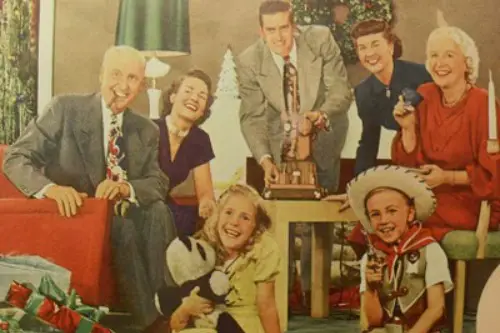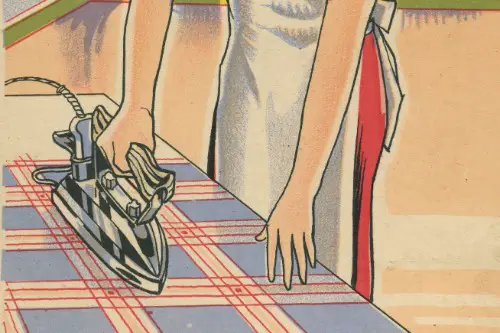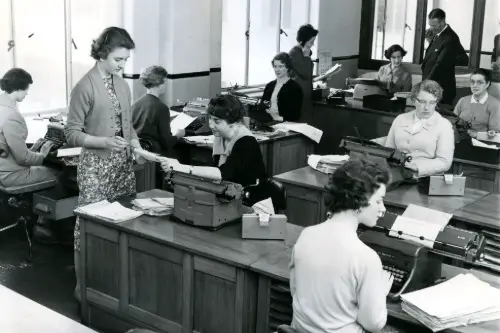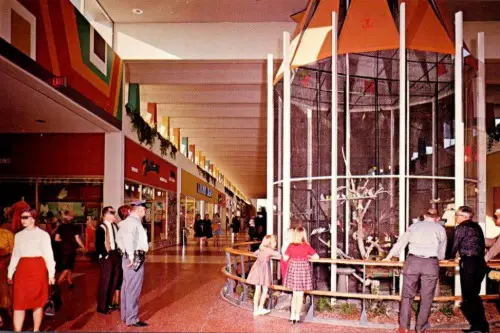1. The Nuclear Family Ideal

Boomers often pushed the idea that a “normal” family meant a mom, a dad, 2.5 kids, and a white picket fence. But society has grown far more diverse, and that model doesn’t fit most people anymore. Single-parent households, blended families, and chosen families are just as valid. The pressure to conform has eased, and that’s a good thing.
This outdated ideal ignored the realities of divorce, adoption, and LGBTQ+ families. It also placed undue pressure on people who didn’t want that lifestyle. Today, the definition of family is more inclusive and reflective of real life, according to Nicole Sussner Rodgers of The Nation. The ideal has changed—and it’s better for it.
2. Balancing a Checkbook

This was a rite of passage, like getting your first library card. Boomers insisted that without this skill, your finances would spiral into chaos. But today, most people use apps that track transactions in real time, and banks automatically update balances. Physical checkbooks are rarely used, let alone manually balanced.
Online banking has automated nearly every aspect of personal finance, according to Liz Weston of USA Today. You can get alerts, categorize spending, and spot fraud instantly. While financial literacy is still crucial, the act of balancing a checkbook is as dated as rotary phones. It’s a skill that was necessary once—but now, not so much.
3. Buying a Starter Home Young

Boomers often touted homeownership as the ultimate life goal, ideally achieved by your mid-20s. But back then, houses were significantly cheaper relative to income, and wages went further. Today’s younger generations face skyrocketing real estate prices, student debt, and stagnant wages. For many, buying a home early isn’t just impractical—it’s impossible, according to Suzanne Blake of Newsweek.
The “starter home” is increasingly a myth. First-time buyers are older and often skip the starter altogether, opting to rent longer and save more. Housing markets in major cities have pushed homeownership out of reach for the average worker. It’s not that owning a home is bad—it’s just not the one-size-fits-all dream it once was.
4. College Is Always Worth It

Boomers came of age when a college degree practically guaranteed a stable job and upward mobility. But the landscape has changed dramatically, with tuition costs soaring and the job market oversaturated with degrees. Many grads now carry tens of thousands in student debt, only to end up in jobs that don’t require a degree. The return on investment isn’t what it used to be, according to Kerry Healy of CNBC.
In fields like tech or trades, many young people are skipping college entirely and still finding success. Certifications, apprenticeships, and on-the-job training are now viable—and often smarter—alternatives. A degree isn’t worthless, but it’s no longer the golden ticket it once was. The idea that college is always “worth it” ignores these new realities.
5. The 9-to-5 Office Job

Boomers built careers around the classic 9-to-5, five-day workweek. But post-pandemic, remote work and flexible hours have shown there’s nothing magical about being in a cubicle. Many companies have embraced hybrid models or ditched the office entirely. Productivity hasn’t dropped—in many cases, it’s improved.
Younger workers now prioritize work-life balance, mental health, and autonomy. The rigid structure of a traditional office job is losing appeal fast. While some industries still need it, many roles can be done from anywhere. The 9-to-5 isn’t extinct, but it’s no longer the default path to success.
6. Ironing Your Clothes

Boomers believed that crisp, ironed clothing was a sign of respect and responsibility. They’d spend Sunday evenings steaming shirts like it was a sacred ritual. But now, wrinkle-resistant fabrics and casual dress codes have made ironing largely unnecessary. In fact, many people don’t even own an iron anymore.
Workplaces have shifted to business casual, and some are full-on remote. Even weddings and formal events have relaxed dress expectations. You can look presentable without pressing every crease. Ironing is more of a hobby than a life skill these days.
7. Owning Fine China

Having a formal dining set used to be a status symbol—and an expected wedding registry item. Boomers often kept their china in a special cabinet, only bringing it out for Thanksgiving. But Millennials and Gen Z aren’t interested in dishes they can’t microwave or dishwash. These delicate, high-maintenance sets are collecting dust or ending up in thrift stores.
Modern lifestyles favor functionality and minimalism. Many people live in smaller spaces and move more frequently, so lugging around breakable plates isn’t practical. Entertaining now often involves paper plates, potlucks, or takeout. The era of fine china has officially passed.
8. Loyalty to One Employer

Boomers preached that sticking with one company for decades would bring job security and a comfortable retirement. But pensions have mostly disappeared, and companies downsize with little warning. Today’s job market rewards adaptability, not loyalty. Switching jobs is often the only way to get a significant pay bump.
Younger workers are more focused on growth, learning, and flexibility. They value purpose and culture over tenure. Staying too long at one place can even hurt your career prospects now. The ladder has become more of a zigzag.
9. Diamonds Are a Must for Engagement

“Diamonds are forever” was drilled into everyone’s heads thanks to a decades-long marketing campaign. Boomers bought into the idea that love had to be proven with a shiny, expensive rock. But Millennials and Gen Z are questioning the ethics and cost of traditional diamonds. Lab-grown stones, alternative gems, or no ring at all are becoming more common.
Couples today are more practical and less swayed by social pressure. The emotional weight of a relationship doesn’t need to be expressed through debt. Plus, awareness around unethical mining practices has changed how people think about jewelry. A diamond ring isn’t a necessity—it’s a choice.
10. Paper Resumes

Boomers built careers on handing out polished, printed resumes and cover letters. You’d walk into an office, hand one over, and hope for a call back. But hiring is now mostly digital, and paper resumes are almost never used. Online platforms like LinkedIn or applicant tracking systems (ATS) have taken over.
Even the format has changed—many resumes are scanned for keywords before a human ever sees them. Tailoring applications to automated systems matters more than paper quality or layout. While a strong resume is still crucial, it lives on screens now. Printing one out just isn’t part of the process anymore.
11. Shopping Malls as Social Hubs

Boomers grew up hanging out at malls—shopping, meeting friends, maybe seeing a movie. But retail has drastically shifted online, and malls are shutting down across the country. For younger generations, social interaction happens more on phones or in digital spaces. Malls just don’t have the pull they once did.
Even the idea of “hanging out” somewhere public has changed. Coffee shops, coworking spaces, and community events have taken over as gathering spots. Plus, financial constraints mean people are less likely to window shop without spending. The mall isn’t dead, but it’s no longer the social heartbeat of youth culture.
12. Cursive Handwriting

Boomers made it seem like you’d never succeed in life if your cursive wasn’t on point. Teachers spent months drilling us on loops and flourishes as if we were all destined to handwrite the Declaration of Independence. But in reality, most workplaces never required cursive, and digital communication quickly made it obsolete. Aside from signing your name (which is barely legible for most people anyway), cursive doesn’t hold much modern relevance.
Ironically, many schools have now dropped it entirely from the curriculum. Studies show that typing skills are far more critical for both academic and career success. Sure, cursive might help with fine motor skills, but it’s not a career maker. And with text recognition software and digital signatures, it’s safe to say we’ve moved on.
13. Saving Every Single Plastic Bag

Boomers had drawers or even entire cabinets filled with plastic grocery bags, “just in case.” It came from a frugal mindset, which made sense in times of economic hardship. But now we’re drowning in plastic waste, and single-use plastics are being banned in many places. The habit has become more of an environmental hazard than a helpful tip.
Reusable bags are now the standard in many households. Cities and stores are encouraging sustainability, not stockpiling. It’s one thing to reuse out of necessity, but hoarding bags doesn’t help anyone today. We’ve got better—and greener—options.


